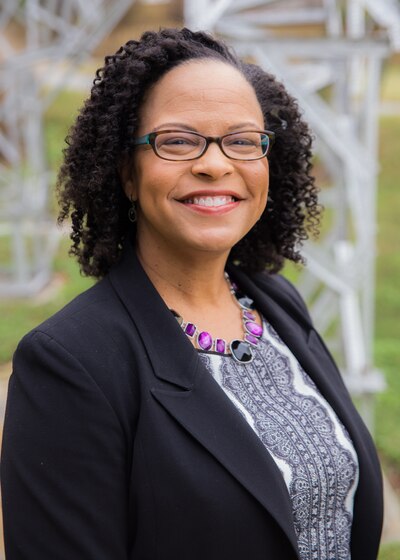Tennessee’s Achievement School District announced Friday that it will take control of four more low-performing Memphis schools, increasing its portfolio to 33 schools statewide and moving forward with its school turnaround work despite a sluggish start.
The schools will be removed from Shelby County Schools and shifted to the control of the state-run ASD, which will assign two schools each to two charter networks. The charter applications were approved by ASD leaders this week following a three-month-long matching process. All four schools will open next fall as charters.
The latest round of schools and operators being matched are:

Missing from the list is Sheffield Elementary, which was also proposed for ASD takeover. While Sheffield is a low-performing priority school — meaning that its test scores are in the bottom 5 percent statewide — the school will remain with Shelby County Schools.
Aspire Public Schools, a California-based network that already operates three Memphis schools under the ASD, had applied to manage Sheffield. However, ASD leaders, citing local input, did not approve the match.
This week’s decisions will affect more than 2,000 students and their families, as well as an estimated 150 faculty and staff members, in the four school communities. It also shifts the landscape again of public education in Memphis, a national hub of school turnaround work funded with local, state, federal and philanthropic investments.
The announcement came days after the release of a report by Vanderbilt’s Peabody College of Education calling the ASD’s academic impacts marginal thus far and suggesting that priority schools in Memphis would be better off in Shelby County Schools’ Innovation Zone, a local district turnaround initiative already produced promising results.
Tennessee Education Commissioner Candice McQueen and incoming ASD Superintendent Malika Anderson said Friday that the state worked with Vanderbilt researchers on the study to determine the impacts of different interventions on priority schools.
“We continue to learn from it,” McQueen said during a morning conference call with reporters.
The commissioner added that the state supports both the ASD and the iZone and considers both “important strategies to make sure we are providing support and intervention for the bottom 5 percent of our schools.”
Anderson, who replaces founding Superintendent Chris Barbic in January, emphasized that “this work takes time” and noted that only six schools have been with the ASD all three years of its existence.
This year’s takeovers mark a significant shift in the ASD’s approach to state intervention. After outright takeover announcements generated angry protests from teachers, parents and students during the last three years, the state-run district overhauled its engagement process so that it announced proposed takeovers in September, received applications from interested charter operators in October, and involved panels of parents and community members in scoring the applicants in November.
ASD leaders said it was the input from Sheffield’s neighborhood advisory council that tipped the scales against a match with Aspire. (You can find the ASD’s summaries of feedback from the neighborhood advisory councils here.)
“Operators that earned 50 percent or more of the available points front the NAC assessments were matched with a neighborhood priority school. Operators that earned less than 50 percent of the available points were not matched,” said a statement from the ASD.
The Sheffield NAC voiced concerns about Aspire’s lack of plans for the school’s growing Latino community and said a lot of the academic supports proposed by the network are already being done under Sheffield’s new principal. In November, Sheffield’s parents organized a protest arguing that school administrators and faculty had turned the trajectory on the school’s academic performance, making state intervention unnecessary.
Aspire leaders said Friday they are disappointed but will “honor the voice of the community and the process.”
“We have three schools to operate in Memphis and our primary focus is doing a high-quality job for those students. We’re not going anywhere,” said Allison Leslie, the network’s executive director in Memphis.
Others were thrilled that Sheffield will remain with Shelby County Schools.
“I know how hard the principal and the staff and the parents have been working with those students and the team support they have from the community. I really believe that they’ll be able to continue the growth they’ve started,” said state Rep. Raumesh Akbari, who championed a new Tennessee law that reduced the number of priority schools eligible for state intervention next year.

Word of the decisions spread Friday at the impacted schools after the ASD informed Shelby County Superintendent Dorsey Hopson and his leadership team. Informational letters from the ASD and charter operators were going home in student backpacks Friday, and robocalls to parents also were planned.
At Raleigh Egypt Middle, the mood was business as usual, despite the seismic changes ahead. Most classes were quiet as students took unit assessments, as they do most Fridays. Principal Ronnie Mackin patrolled the halls, leaning in to hug students and issuing friendly reminders to tuck in shirts and hurry to class.
“We’ve really worked hard to build relationships here,” said Mackin, who came to the school in 2014. “We are seeing some really good things in just the two years I’ve been here. If I could’ve had just two more years, this school would be totally different.”
Officials with Green Dot and Scholar Academies say they will begin meeting next week with faculty and will encourage all teachers to apply to remain at the schools. The charters have autonomy to choose their own faculty.
“We have eight months to build the school that the community envisions and deserves for their children,” said Jana Wilcox-Lavin, executive director of Scholar Academies in Memphis, now matched with Raleigh-Egypt and Caldwell-Guthrie schools.
Wilcox-Lavin said Scholar Academies, which is based in Philadelphia and already operates Florida-Kansas Elementary in Memphis, will quickly establish parent advisory councils “to provide input and guidance on what the schools will look like in August 2016 and ensure that we know about the schools’ traditions, programs and successes.”
Many community leaders expressed disgust over the ASD’s decision to proceed with four more takeovers, especially in light of this week’s Vanderbilt study.
“This is not a victory; it’s an injustice,” said Stephanie Love, a member of the Shelby County school board and vocal opponent of the ASD.

“We know these charters are not effective. … We have a model that works. Shame on the state for even implementing this experiment. They wouldn’t do it to their own children,” she said.
Asked about charges by local black officials that the state is using the ASD to “experiment” on the city’s mostly black students, Anderson bristled.
“The ASD is committed to bringing schools into the district that for decades have been languishing … and where we have evidence that these students are not getting what they’re needing,” said Anderson, who is black. “It’s our obligation. … The evidence shows that the longer students are served by the ASD, the better they are doing.”
Sixty-nine Memphis schools were on the state’s priority list when it was created in 2012. The ASD’s announcement leaves 11 of those schools without a turnaround plan through either the ASD or Shelby County’s iZone. However, that number likely will change again next week when Shelby County Schools is expected to tap additional schools for its iZone.
Chalkbeat reporter Grace Tatter and Ruma Kumar, a Memphis-based freelance journalist, contributed to this report.
Editor’s note: This story is being updated throughout the day.

